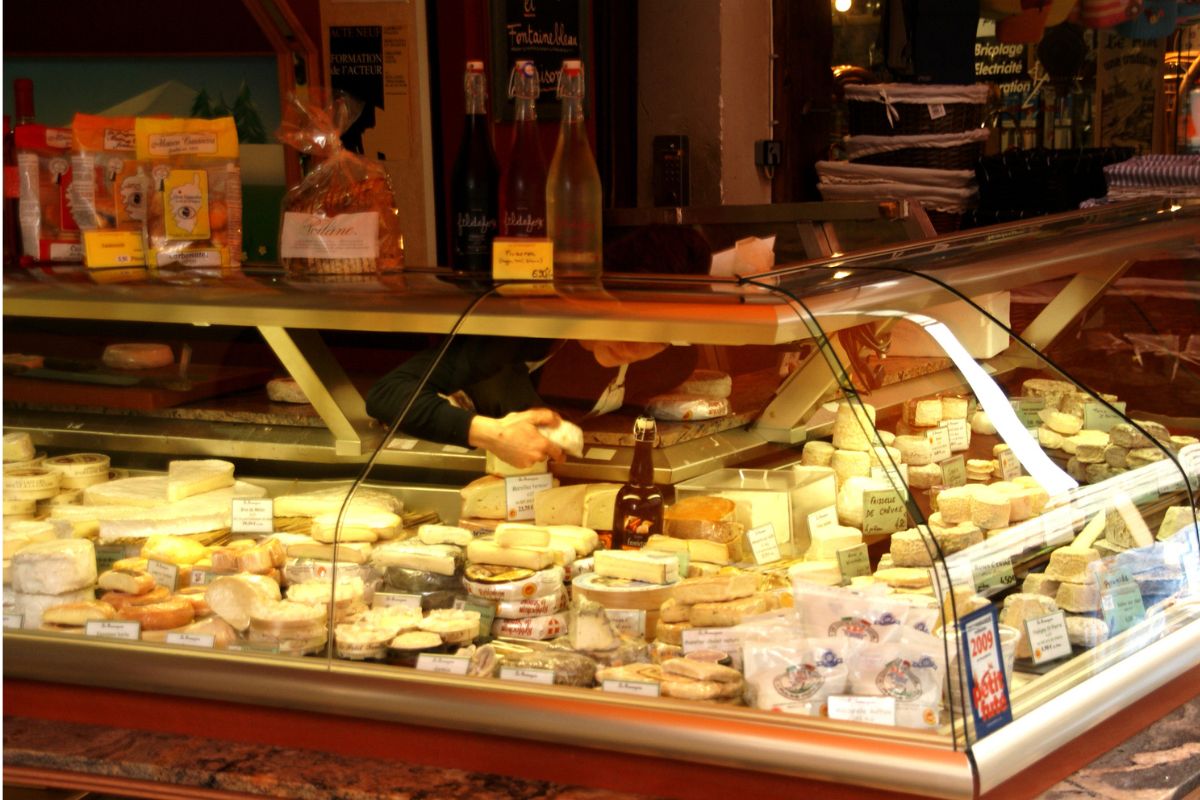If you’ve bought deli cheese, you may be wondering how long deli cheese will keep. This is a common question as many people love to buy deli cheese but don’t know how long it will keep?
It can be difficult to determine the shelf life of different types of cheese because there are so many different types. Since each variety usually has a different shelf life in the refrigerator after purchase.
As with any food, it’s important to be careful not to eat spoiled deli cheese. Or it’s stored incorrectly, causing it to break faster than it should.
Read on to find out how long deli cheese keeps and how to tell if your deli cheese has gone bad.
Delicatessen cheese has a shelf life of 2 to 4 weeks
If you love to eat deli cheese, you might be wondering how long deli cheese keeps after you buy it. The good news is that a deli cheese actually has a fairly long shelf life, often as much as two to four weeks in the refrigerator.
Delicatessen cheese is unique in that it is not traditional cheese as you might think. Deli cheese is made from traditional cheese, but then mixed with other ingredients to make it meltable.

This process creates a sliceable cheese that looks and tastes like real cheese, but melts much easier. So you can add it to your sandwiches without it getting greasy and chewy like regular cheese.
It also has a reputation for being durable after purchase if properly stored. Therefore, you need to make sure that you always store your sliced deli cheese in the fridge.
You should also make sure it’s completely covered so it’s not exposed to the air or bacteria. This will give your deli cheese a longer shelf life, allowing you to enjoy it for several weeks.
The best before date is not always correct for delicatessen cheeses
If you buy delicatessen cheese frequently, you should bear in mind that the best-before date is not always correct. This date is mostly correct as the product was supposed to be sold by this specific date.
However, this date does not indicate when your deli cheese will or will not go bad. It simply means that the cheese must be sold to a customer before that date in order for it to be fresh.
As long as you have stored your delicatessen cheese properly and kept it nice and cool, it should last significantly longer than this date. This rule applies to many different types of food, as most foods have a shelf life longer than the date printed on the package.
Deli cheese can also be frozen
What many people may not know is that deli cheeses can also be frozen to extend its shelf life. This is a great option if you’ve bought deli cheese and can’t use it up before it goes bad.

Deli cheese can be wrapped and frozen in the freezer until ready to use. This literally freezes the time for this cheese and keeps it intact until you are ready to enjoy it.
This is also a great option when deli cheeses are on sale and you know you’ll enjoy them later. Those who use deli cheese frequently will find this tip useful if they want to make sure they always have it on hand.
How do you tell if deli cheese has gone bad?
Now that you know how long deli cheese keeps, it’s important to also know how to tell if it’s gone bad. Want to spot the signs that your deli cheese has gone bad so you don’t accidentally eat it?
The good thing is that no matter the type of cheese, it’s easy to spot the signs that cheese has gone bad. This is usually fairly easy to do so you don’t accidentally eat aged and spoiled cheese.
Bad smell
Deli cheese that is no longer good usually has a bad smell that doesn’t match the normal smell of deli cheese. Deli cheeses typically have a smooth and slightly sweet smell that differs from most cheeses.
When it’s gone bad, that scent often morphs into something more unusual that can smell acidic or even smell like mold. If your jelly cheese and its smell changes in any way, it’s best to toss it and buy cream cheese instead.

color change
Depending on the type you buy, deli cheese is usually bright or pale orange in color, or creamy white in color. If the cheese darkens and discolors, or turns brown, yellow, or green, you should not eat it.
Delicatessen cheese that is still fresh and suitable for consumption does not change its appearance and certainly not its colour.
mold growth
Any kind of growth on your jelly cheese is a clear sign that it has gone bad and should not be eaten. This often comes in the form of mold that grows on the cheese and is grey, blue or green in colour.
Any sign of growth should be taken seriously and you should discard the cheese.
